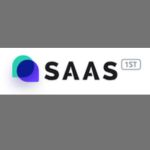Top Application Lifecycle Management Software
Welcome to our comprehensive guide to the top Application Lifecycle Management (ALM) software. Here, you will find a curated list of the best ALM tools, designed to help you streamline and manage the entire application lifecycle. Our listings are based on millions of verified user reviews, ensuring you have access to reliable and unbiased opinions. Use our comparison and filtering options to identify the ALM software that best meets your specific needs. Whether you’re looking for robust features, user-friendly interfaces, or exceptional customer support, our guide will help you make an informed decision.
List of the Best Application Lifecycle Management Software
-
Features
- Campaign Analytics
- Contact Management
- Campaign Scheduling
- CAN-SPAM Compliance
- Customizable Fields
- Event Triggered Actions
- Landing Pages/Web Forms
-
Category Type
Email Marketing Software
-
Price
Not provided by the vendor
-
Features
- Campaign Analytics
- Campaign Scheduling
- CAN-SPAM Compliance
- Contact Management
- Reporting/Analytics
- Customizable Fields
- Mobile Optimization
-
Category Type
Email Marketing Software
-
Price
$45 Per Month
-
Features
- Billing and Invoicing Features
-
Category Type
Billing and Invoicing
-
Price
Monthly Payment, Free 30 Days Trial
-
Features
- Recruting Features
- Apllication Tracking Features
-
Category Type
-
Price
30 Days Trial
-
Features
- App Development Features
- Code Refractoring
- Access Control
- Collaboration tools
-
Category Type
-
Price
Monthly, Annual Subscription, Quote Based, One-Time Payment, Free
NetSuiteCRM (Oracle)
-
Features
- Contact Management
- Lead Management Features
- Sales Force Automation Features
- CRM Features
- Email Integration
- Custom Dashboards
- Collaboration tools
-
Category Type
-
Price
Contact Vendor
-
Features
- Accounts Payable, Bank Reconciliation
- Booking Management
-
Category Type
-
Price
99 or 249 Rs per Month
-
Features
- Accounts Payable
- Project Accounting
-
Category Type
-
Features
- Candidate Management
- Multi-Channel Integration
-
Category Type
-
Price
$18.99 Per Month
-
Features
- Compatibility Testing
- Debugging
-
Category Type
1.What features should I look for in an Application Lifecycle Management software?
Key features to consider include requirements management, project planning and tracking, source code management, testing and quality assurance, deployment automation, and integration with other development tools. Additionally, look for robust reporting and analytics capabilities to monitor and improve the development process.
Let’s delve deeper into each of these features and explore additional critical aspects:
Core ALM Features
- Requirements Management:
- Comprehensive capture, documentation, and traceability of requirements.
- Prioritization and ranking of requirements based on business value.
- Version control and change management for requirements.
- Integration with other ALM modules for seamless traceability.
- Project Planning and Tracking:
- Agile and waterfall methodologies support.
- Task management and assignment.
- Resource allocation and capacity planning.
- Gantt charts and project timelines.
- Real-time progress tracking and reporting.
- Source Code Management:
- Centralized repository for code storage.
- Version control and branching.
- Code reviews and collaboration.
- Integration with build and deployment tools.
- Testing and Quality Assurance:
- Test case management and execution.
- Defect tracking and management.
- Test automation support.
- Test coverage analysis.
- Performance testing capabilities.
- Deployment Automation:
- Continuous integration and continuous delivery (CI/CD) pipelines.
- Environment provisioning and configuration management.
- Deployment orchestration and automation.
- Release management and control.
- Integration with Other Development Tools:
- Seamless integration with popular IDEs, bug trackers, and collaboration tools.
- Open APIs for custom integrations.
Additional Key Considerations
- Collaboration and Communication:
- Real-time collaboration features like chat, forums, and wikis.
- Document sharing and version control.
- Notification and alerts for important events.
- Reporting and Analytics:
- Customizable reports on project progress, quality metrics, and resource utilization.
- Dashboards for real-time insights into project health.
- Predictive analytics to identify potential risks and bottlenecks.
- Security and Compliance:
- Role-based access control (RBAC).
- Data encryption and protection.
- Audit trails and compliance reporting.
- Integration with security testing tools.
- Scalability and Performance:
- Ability to handle large-scale projects and teams.
- Fast performance and responsiveness.
- Cloud-based or on-premises deployment options.
- User Experience:
- Intuitive and user-friendly interface.
- Customizable workflows and dashboards.
- Excellent support and documentation.
By carefully evaluating these features and considering your specific project needs, you can select an ALM software that effectively supports your development lifecycle and drives project success.
Would you like to explore any of these features in more detail, or do you have specific questions about your project requirements?
2.How can ALM software improve my development process?
ALM software streamlines the entire application lifecycle from planning to deployment, enhancing collaboration, improving project visibility, and ensuring compliance with development standards. It helps teams manage requirements, track progress, automate workflows, and maintain high-quality code, leading to more efficient and successful project outcomes.
Let’s delve deeper into how it can specifically enhance your development process:
Specific Improvements Enabled by ALM Software
- Increased Efficiency:
- Automation: Automating repetitive tasks like builds, deployments, and test execution saves time and reduces errors.
- Streamlined Collaboration: Centralized platform for communication and collaboration among teams.
- Improved Resource Utilization: Effective allocation of resources based on real-time data and analytics.
- Enhanced Quality:
- Early Defect Detection: Identifying and addressing issues early in the development cycle.
- Improved Test Coverage: Ensuring thorough testing through comprehensive test case management.
- Compliance Adherence: Meeting industry standards and regulatory requirements.
- Better Visibility and Control:
- Real-time Project Tracking: Monitoring project progress and identifying potential bottlenecks.
- Risk Management: Proactive identification and mitigation of risks.
- Improved Decision Making: Data-driven insights for informed decision-making.
- Faster Time-to-Market:
- Accelerated Development: Streamlined workflows and automation lead to faster development cycles.
- Reduced Time to Deployment: Efficient deployment processes with CI/CD pipelines.
- Increased Market Responsiveness: Ability to adapt to changing market conditions quickly.
Additional Benefits
- Improved Stakeholder Satisfaction: By delivering high-quality products on time and within budget.
- Reduced Costs: Optimizing resource utilization and minimizing rework.
- Enhanced Knowledge Management: Centralized repository for project documentation and best practices.
By implementing an ALM solution, you can significantly improve the overall efficiency, quality, and predictability of your software development process.
Would you like to explore specific use cases or challenges you’re facing in your development process? I can provide tailored recommendations based on your needs.
3.How do I choose the right ALM software for my organization?
To choose the right ALM software, assess your organization’s specific needs, budget, and development processes. Consider the software’s scalability, ease of use, support and training options, and user reviews. A free trial or demo can also help you evaluate the software’s suitability for your team before making a final decision.
Let’s expand on these key factors and introduce additional considerations:
Key Factors for Selecting ALM Software
- Organizational Needs Assessment:
- Clearly define your organization’s specific requirements, pain points, and goals.
- Consider the size of your development team, project complexity, and industry regulations.
- Evaluate your current development processes and identify areas for improvement.
- Budget and ROI:
- Determine your budget for the ALM software and implementation.
- Calculate the potential return on investment (ROI) by quantifying expected benefits.
- Consider the total cost of ownership, including licensing, implementation, training, and ongoing support.
- Scalability and Flexibility:
- Choose software that can accommodate your organization’s growth and changing needs.
- Evaluate the software’s ability to handle increased project volume and team size.
- Consider the software’s flexibility to adapt to new development methodologies or technologies.
- Ease of Use and Adoption:
- Select software with a user-friendly interface that minimizes training requirements.
- Consider the software’s alignment with your team’s existing workflows and tools.
- Evaluate user feedback and reviews to assess the software’s usability.
- Vendor Support and Training:
- Assess the vendor’s reputation, customer support, and training resources.
- Evaluate the availability of implementation services and ongoing support.
- Consider the vendor’s commitment to product development and updates.
- Integration Capabilities:
- Ensure the software integrates seamlessly with your existing tools and systems.
- Consider integration with version control, bug tracking, testing, and deployment tools.
- Evaluate the software’s ability to connect with third-party applications.
- Data Security and Compliance:
- Verify the software’s security features to protect sensitive data.
- Ensure compliance with industry regulations and data privacy standards.
- Assess the vendor’s security practices and incident response plans.
Additional Considerations
- Proof of Concept (POC): Conduct a pilot project to evaluate the software in a real-world environment.
- Vendor References: Speak to other organizations using the software to gather feedback.
- Long-Term Vision: Consider your organization’s future plans and how the ALM software aligns with them.
By carefully evaluating these factors, you can select an ALM software that effectively supports your organization’s development goals and drives overall success.
Would you like to discuss any specific challenges or requirements your organization faces?
4.What are the benefits of using a cloud-based ALM software?
Cloud-based ALM software offers several benefits, including easier scalability, reduced infrastructure costs, automatic updates, and remote access. It enables distributed teams to collaborate effectively in real-time and provides a secure and centralized platform for managing the entire application lifecycle, ensuring consistent and efficient development process.
Let’s explore these benefits in more detail and introduce additional points:
Key Benefits of Cloud-Based ALM Software
- Enhanced Scalability:
- Effortlessly adjust resources based on project demands.
- Handle fluctuating workloads without investing in additional infrastructure.
- Reduced Costs:
- Eliminate upfront hardware and software expenses.
- Lower maintenance and operational costs.
- Benefit from pay-per-use pricing models.
- Improved Collaboration:
- Real-time access and collaboration for globally distributed teams.
- Centralized platform for sharing information and updates.
- Enhanced communication and knowledge sharing.
- Increased Accessibility:
- Remote access to ALM tools from any device with internet connectivity.
- Improved flexibility and productivity for remote teams.
- Automatic Updates:
- Ensure access to the latest features and security patches.
- Reduce administrative overhead and downtime.
- Enhanced Security:
- Benefit from robust cloud security measures.
- Regular security audits and updates by the cloud provider.
- Reduced risk of data breaches and loss.
- Faster Time-to-Market:
- Accelerated development and deployment processes.
- Streamlined workflows and automation.
- Improved project visibility and control.
Additional Benefits
- Disaster Recovery: Cloud-based ALM solutions often provide built-in disaster recovery capabilities.
- Environmental Impact: Reduced carbon footprint compared to on-premises solutions.
By leveraging cloud-based ALM software, organizations can achieve greater agility, cost-efficiency, and overall project success.
Would you like to explore specific use cases or challenges where cloud-based ALM could be particularly beneficial?








